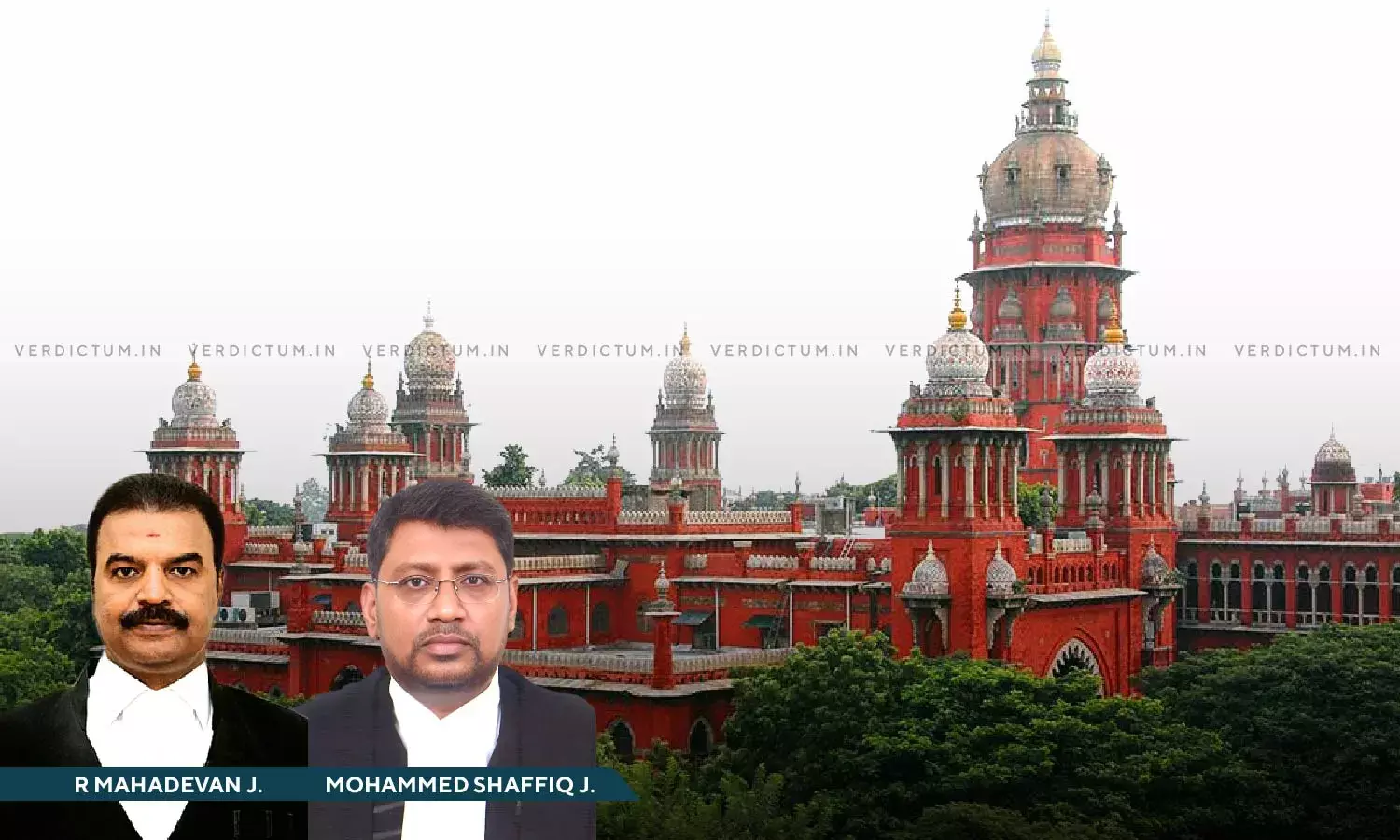Grandparents Cannot Be Denied Reasonable Access/Visitation Rights, As It Is Beneficial For The Child's Normal Development: Madras HC
The Madras High Court has recently observed that grandparents cannot be denied reasonable access/visitation rights, as it also help the child's normal development.
The Bench further observed that an affectionate relationship with grandparents is recognised as beneficial for the child.
A Bench of Justice R. Mahadevan and Justice Mohammed Shaffiq thus observed, “In custody / guardianship matters, the courts have to consider the welfare of the minor child, which is a paramount consideration and to ensure and safeguard family system in the country, which is fast eroding and to ensure that there is overall development of the minor child and there is proper environment and upbringing of the child and therefore, the best interests of the child are taken care. In the present case, admittedly, the minor child as on date is at the tender age of 2½ years (born on 03.09.2021) and therefore, the appellant / mother can claim custody over the minor child”.
“At the same time, the grandparents cannot be denied reasonable access/visitation rights, which will also help the child's normal development. An affectionate relationship with grandparents is recognised as beneficial for the child. It is to be pointed out at this juncture that the minor child had been under the grandparents' care since birth, which was disturbed due to the strained relationship between the parties”, the bench further observed.
Senior Counsel Chitra Sampath and Advocate K. Shanker appeared for the appellant and Senior Counsel S. Prabhakaran and Advocate G. Anandaraj appeared for the respondent.
In the matter, Original Side Appeal was instituted against the order and decreetal order.
The respondents (Grandparents), who are the in-laws of the appellant, preferred a petition for grant of permanent custody and appointing them as guardian of their minor born on September 3, 2021. According to the respondents, their only son married the appellant in 2020 and out of the said wedlock, a female child was born. However, the son of the respondents passed away on October 21, 2022. Thereafter, dispute arose between the parties, which resulted in registration of the criminal cases against them. During the course of enquiry, an agreement was entered into between the parties and as per the same, the custody of the child was given to the appellant and the visitation rights to the respondents herein.
Contrary to the same, the appellant refused to permit the respondents to have their visitation rights of the minor grandchild. Feeling aggrieved, the respondents preferred the original petition.
It was alleged by the appellant that in the wake of the unfortunate events surrounding the illness and subsequent demise her husband, the respondents responded unfavorably by unjustly blaming the appellant, spreading unfounded rumours about her and branding her as inauspicious.
The appellant also raised several allegations against the respondents including harassment, neglect of the child's health, forcibly taken away the child, vandaling her parental home, etc. to substantiate that the respondents are not entitled for custody as well as visitation rights of the minor child. She further alleged that the mediation agreement was signed by her under duress.
While the respondents submitted that they were already affected by the death of their only son, and that, they own substantial properties in Chennai and sufficient means to secure the child's future, whereas, the appellant's parents have limited means, which would be detrimental for the proper upbringing of the child, if she is in their custody.
The Court, therefore, had to decide whether the grant of visitation rights to the respondents/ grandparents by the Judge as an interim measure was sustainable.
Accordingly, the Bench observed, “Upon weighing the totality of facts and circumstances of the case, this court is inclined to modify the order of the learned Judge, granting visitation rights to the respondents/grandparents, by restricting it to once in every month, i.e., the first Saturday from 2.00 pm to 6.00 pm at the Child Care Centre attached to the Family Court in Chennai. The appellant shall personally bring and leave the child for visitation. The parties are at liberty to have amicable settlement between themselves or to approach the learned Judge, for any other relief. All the contentions raised herein are left open to be adjudicated in the pending applications and original petition”.
Appearance:
Appellant: Senior Counsel Chitra Sampath and Advocate K. Shanker
Respondents: Senior Counsel S. Prabhakaran and Advocate G. Anandaraj
Cause Title: A.Aashifa Begum v. Khader Beevi
Click here to read/download the Judgment




